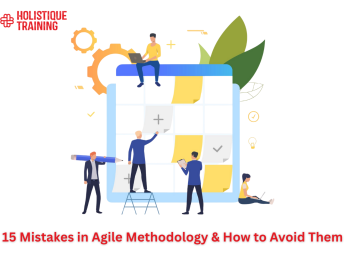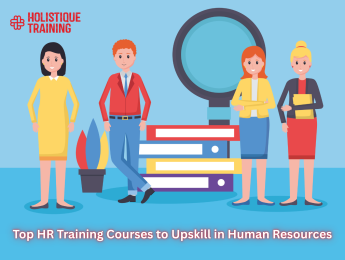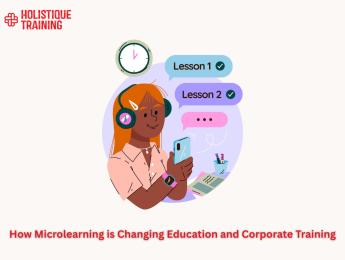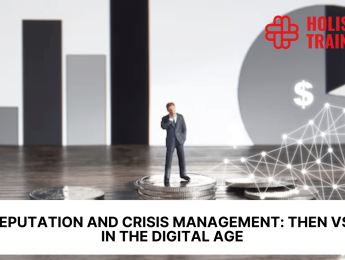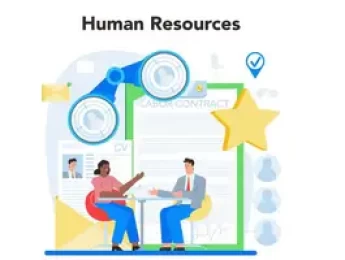- Table of Contents
- Introduction
- 1. Embrace Lifelong Learning
- 2. Develop Transferable Skills
- 3. Stay Updated on Industry Trends
- 4. Build a Strong Professional Network
- 5. Cultivate Digital Literacy
- 6. Be Open to Change and Adaptability
- 7. Invest in Your Personal Brand
- 8. Explore Emerging Fields and Roles
- 9. Take Care of Your Wellbeing and Resilience
- Conclusion
Introduction
The modern job market is evolving at an unprecedented pace, fuelled by rapid technological advancements, globalisation, shifting demographics, and the emergence of entirely new industries. What is considered a critical skill today may become obsolete in just a few years — or even months — as automation and artificial intelligence reshape how work is done.
In this volatile and competitive environment, future-proofing your career is no longer a luxury — it has become an absolute necessity. Waiting passively for change to happen puts you at risk of being left behind. Taking deliberate, strategic steps now will ensure you remain valuable, adaptable, and fulfilled in your profession, no matter how the landscape evolves.
Below are nine actionable strategies to help you secure your professional future and thrive — not just survive — in the years to come
1. Embrace Lifelong Learning
The notion of a “one-and-done” education, where a university degree or early training sustains an entire career, is no longer viable in today’s fast-changing economy. Technologies evolve, industries emerge and disappear, and new skills are constantly required. Lifelong learning enables you not only to keep pace but also to remain competitive and capable of seizing new opportunities.
This commitment to learning can take many forms: enrolling in advanced degree programmes to deepen your expertise; obtaining professional certifications to demonstrate your proficiency in new areas; completing online courses to acquire specific, in-demand skills; or even engaging in informal, self-directed study through books, podcasts, and webinars.
In particular, platforms like Holistique Training offer tailored professional development programmes, equipping individuals with the up-to-date knowledge and practical capabilities needed to stay at the forefront of their fields. Such programmes are designed to bridge the gap between where you are now and where the job market is heading, ensuring you don’t fall behind.
At the psychological level, cultivating what Carol Dweck of Stanford University describes as a growth mindset is equally vital. Rather than believing your abilities are fixed, a growth mindset is the understanding that skills and intelligence can always be developed through effort and perseverance. As outlined in Harvard Business Review, individuals who adopt this perspective not only achieve higher levels of success but also report greater resilience and satisfaction in their careers.
In practice, this means viewing every challenge — whether it’s mastering a new technology or adapting to a new organisational structure — as an opportunity to learn and grow, rather than as a threat to your competence.
2. Develop Transferable Skills
While technical expertise — such as coding, accounting, or data analysis — remains essential in many roles, it is your transferable skills that make you truly resilient and versatile across industries and job functions. These are the universally valued capabilities that enable you to excel in diverse environments, adapt to change, and take on leadership roles effectively.
Some of the most sought-after transferable skills include:
- Effective communication — The ability to clearly articulate your ideas in writing, verbally, and even non-verbally, while also being an attentive listener.
- Leadership and inspiration — Motivating and guiding others, managing teams, and fostering an inclusive, productive workplace.
- Critical thinking and creative problem-solving — Analysing situations logically and developing innovative solutions to complex challenges.
- Emotional intelligence and adaptability under pressure — Understanding and managing your own emotions, empathising with others, and maintaining composure during stressful situations.
These skills do more than simply make you a better employee; they position you as someone who can lead, collaborate effectively, and navigate organisational shifts.
To demonstrate these abilities, weave specific, measurable examples into your CV. For instance, rather than merely stating “good leader,” describe how you “led a cross-functional team of 12 to deliver a £2M project on time and under budget.” Likewise, prepare stories for interviews that illustrate these skills in action — for example, resolving a team conflict or successfully managing a sudden organisational change.
Employers are increasingly recognising the importance of these skills over purely technical proficiency. According to the LinkedIn 2024 Workforce Report, these “soft” skills are among the most highly valued, as they are difficult to automate and critical for collaboration, innovation, and leadership in today’s workplaces.
In short, investing in and demonstrating your transferable skills not only enhances your immediate employability but also prepares you for leadership and cross-industry mobility in the long term.
3. Stay Updated on Industry Trends
One of the greatest risks professionals face today is becoming disconnected from the evolving needs of their industry. When you fail to stay informed, your skill set can quickly become irrelevant — not because it lacks quality, but because it no longer aligns with current or emerging demands.
Staying updated is about more than just keeping your job — it positions you as a thought leader, helps you anticipate change, and allows you to seize new opportunities before others even recognise them.
There are many ways to stay current:
- Subscribe to newsletters and professional journals, which often deliver the latest insights directly to your inbox.
- Listen to industry podcasts, which can provide context and commentary from experts while you’re on the go.
- Attend conferences, webinars, and trade shows, which offer access to cutting-edge developments and facilitate direct discussions with innovators.
- Engage with mentors or industry peers, who can help interpret trends and recommend areas for growth.
Certain industries evolve especially quickly — such as technology, healthcare, and renewable energy — making this vigilance even more crucial. According to a recent Forbes article, professionals who regularly invest time in understanding where their industry is heading tend to remain not only employable but highly sought after.
By cultivating a habit of staying informed, you demonstrate your commitment to excellence and ensure that your skills and knowledge remain valuable and relevant.
4. Build a Strong Professional Network
A robust professional network can be one of your most powerful career assets. Beyond simply expanding your list of contacts, networking exposes you to fresh perspectives, helps you uncover hidden opportunities, and provides emotional and practical support during times of transition.
In fact, many job openings are never publicly advertised — they are filled through referrals and recommendations within trusted networks. Therefore, your connections often play a decisive role in your career progression.
To build and maintain a strong network:
- Leverage LinkedIn to connect with colleagues, industry figures, and thought leaders, and engage actively by sharing insights and commenting on posts.
- Attend industry events, seminars, and meet-ups, even virtually, to meet professionals outside your immediate circle.
- Join professional associations or interest groups, which often offer mentorship schemes, workshops, and exclusive opportunities.
- Stay in regular contact with your connections — don’t wait until you need something to reach out. Congratulate them on milestones, share helpful articles, and offer your assistance where appropriate.
Developing relationships with mentors and supportive peers also provides invaluable guidance and encouragement when navigating your career path. As highlighted in a BBC Worklife report, effective networking is more crucial than ever in today’s hybrid and remote work environments, where chance encounters are rare and intentional connection-building becomes a differentiator.
In short, your network is not just a resource; it is an ecosystem that nurtures your growth and helps you adapt to an unpredictable job market.
5. Cultivate Digital Literacy
In the digital age, digital literacy is a non-negotiable skill — not only for those in tech-heavy roles but for virtually every profession. It refers to the ability to confidently use technology, critically assess digital information, and understand how digital tools can enhance productivity and decision-making.
Mastering digital literacy ensures you can adapt to changing workflows, work more efficiently, and remain competitive in your field. This does not necessarily mean you need to become a programmer, but rather develop a comfort level with the tools and platforms relevant to your role.
Some practical ways to cultivate digital literacy include:
- Learning how to analyse and interpret data using platforms like Excel, Google Analytics, or Tableau.
- Becoming proficient in collaboration tools such as Slack, Microsoft Teams, or Trello.
- Understanding the basics of automation, cloud computing, and — if relevant — even a little coding.
Rather than resisting technological change, embrace it as an opportunity to work smarter and unlock new possibilities. As the workforce becomes more reliant on AI, automation, and digital collaboration, those with strong digital fluency will have a distinct advantage.
Table: Digital Tools Worth Learning by Industry
Industry | Essential Tools/Skills |
Marketing | Google Analytics, SEO, Canva |
Finance | Excel, Tableau, RPA |
Education | Learning Management Systems (LMS) |
Healthcare | Electronic Health Records (EHR) |
IT & Engineering | Cloud Computing, Python, GitHub |
6. Be Open to Change and Adaptability
Adaptability is one of the most valuable traits you can develop in a rapidly evolving job market. The ability to pivot, learn, and adjust your expectations when circumstances shift demonstrates resilience and resourcefulness.
Change can take many forms — organisational restructuring, technological disruption, economic downturns, or even a shift in personal interests. Those who resist change risk becoming stagnant, whereas those who embrace it can uncover unexpected opportunities.
Practical strategies for cultivating adaptability include:
- Taking on stretch assignments that push you outside your comfort zone.
- Volunteering for cross-departmental projects to gain new perspectives.
- Regularly reflecting on your strengths and weaknesses, and seeking feedback to adjust accordingly.
7. Invest in Your Personal Brand
In a crowded and competitive job market, your personal brand — the way you present yourself and the reputation you build — can set you apart from others with similar credentials.
Your personal brand communicates your values, expertise, and unique perspective. It is reflected not only in your CV but also in your online presence, the way you engage with colleagues, and the content you share.
Steps to strengthen your personal brand include:
- Creating a polished and up-to-date LinkedIn profile, highlighting measurable achievements and showcasing your personality.
- Building a professional portfolio of your work to demonstrate competence and credibility.
- Sharing your insights, whether through blogging, public speaking, or participating in discussions, to establish yourself as a thought leader.
An authentic personal brand helps you stand out in a digital-first world and ensures that opportunities find you, even when you are not actively looking.
8. Explore Emerging Fields and Roles
The jobs of tomorrow often do not yet exist today — but the seeds of those roles are already being planted. Professionals who keep an eye on emerging fields and proactively develop the relevant skills are more likely to thrive.
Industries such as artificial intelligence, green energy, healthcare technology, cybersecurity, and digital content creation are seeing exponential growth. Exploring these areas — even tangentially — can future-proof your career by aligning you with expanding markets.
You can begin by:
- Taking introductory courses in emerging disciplines.
- Freelancing or volunteering on side projects to gain practical experience.
- Attending industry talks and connecting with professionals already working in these areas.
Remaining curious and open to experimentation not only keeps you employable but can also spark new interests and passions you might not have previously considered.
9. Take Care of Your Wellbeing and Resilience
Finally and perhaps most importantly, your physical, mental, and emotional wellbeing form the foundation of a sustainable career. High-achieving professionals often neglect their health in pursuit of success, but burnout and chronic stress can derail even the most promising trajectory.
Building resilience allows you to recover from setbacks, cope with uncertainty, and maintain a balanced perspective — all of which are crucial in a turbulent job market.
Practical habits for supporting wellbeing include:
- Incorporating regular exercise and a nutritious diet into your routine.
- Practising mindfulness or meditation to manage stress effectively.
- Maintaining boundaries between work and personal life to avoid exhaustion.
According to Harvard Health, resilience is a skill that can be strengthened over time and contributes directly to higher job satisfaction and long-term career success.
In short, investing in your health is investing in your professional future — enabling you to meet challenges with energy, focus, and confidence.
Conclusion
Future-proofing your career is not a box you can simply tick and move on from — it is an ongoing journey of growth, reflection, and adaptation. The world of work will continue to change, often in ways we cannot yet predict, but by remaining proactive and intentional about your development, you can position yourself not just to survive those changes but to flourish within them.
Investing in your skills, nurturing a growth-oriented mindset, building and maintaining a robust professional network, and prioritising your wellbeing are not just career strategies — they are investments in your future self. Each step you take strengthens your ability to navigate uncertainty, spot emerging opportunities, and adapt with confidence and resilience







